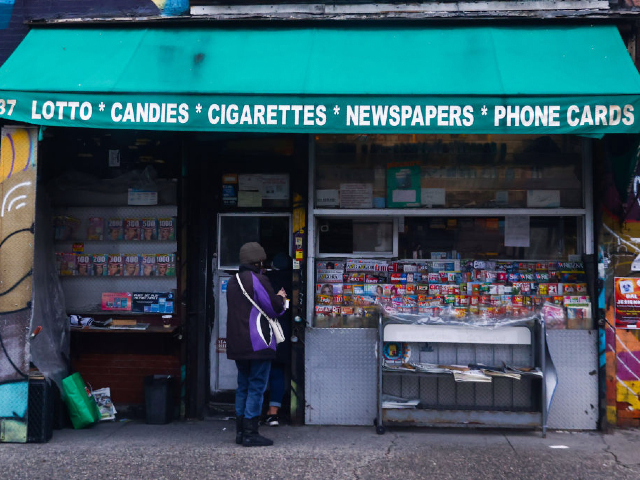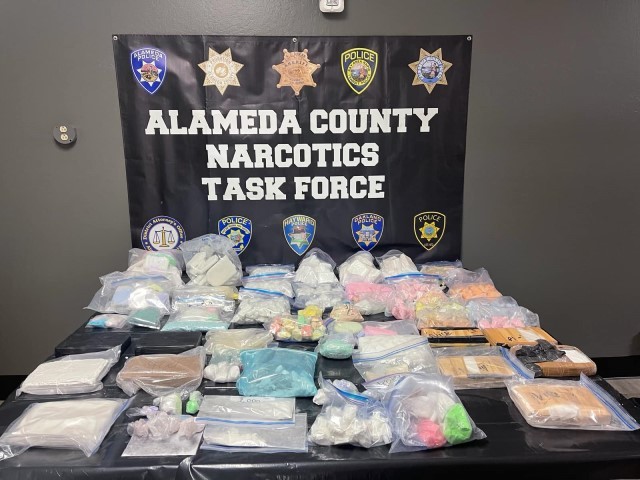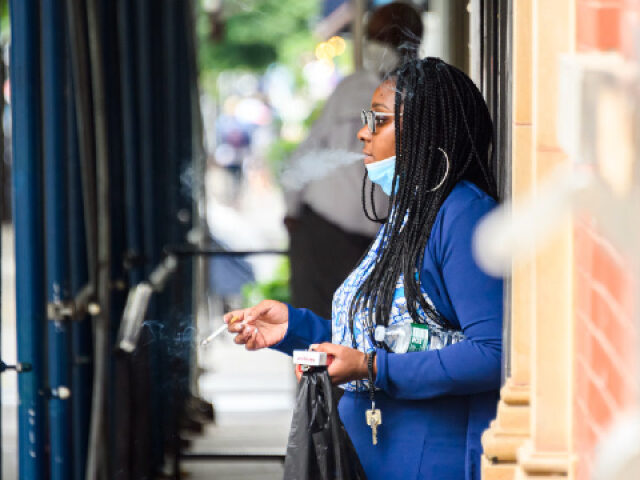Restrictions placed on cigarettes by “progressive” lawmakers further strain an already-fragile relationship between police and the communities they are tasked to protect, according to an expert who spoke to Breitbart News.
As states like New York and California — who ostensibly prioritize police relations with communities — implement tighter restrictions and taxes on cigarettes and other tobacco products, to be enforced on the ground by cops, Georgetown University professor and 27-year veteran of the Bureau of Alcohol, Tobacco, Firearms and Explosives Rich Marianos, told Breitbart that the policies are “ill-planned from the get-go.”
Last month, New York Governor Kathy Hochul (D) proposed a plan to raise cigarette taxes by another dollar, up to $5.35, in the state that already has the highest rate in the nation. Meanwhile, a California law banning the sale of flavored tobacco products was upheld via ballot referendum in December. And according to Marianos, these gestures are “bad policy with bad consequences that are going to erupt,” as police are forced to deal with black market cigarette sales.
“California puts this ban in place — they don’t sit down with any of the regulators, any of the wholesalers or store owners, or any of the law enforcement, and everybody gets affected in the worst way,” Marianos told Breitbart. “How do you put police reform in place in a state like California, when now they’re expected to go out there and enforce the sale of flavored tobacco, that was legal for the last 100 years? Okay, you want to drive a wedge between the community and the police, start having them enforce tobacco regulations.”
“What happened to serving and protecting? You’re working on an ordinance, or a senseless violation, that was put together by a city council, you’re not serving and protecting. In California, we have the largest fentanyl problem in any state, and you’re enforcing cigarettes,” Marianos continued.
Regarding skyrocketing tobacco taxes, like in New York, Marianos explained how the policy leads to correlated levels of smuggling crime — often conducted by violent gangs.
According to a report published by the DC-based Tax Foundation think tank, there is a “strong positive relationship between cigarette smuggling and tax rates across U.S. states and the District of Columbia. The data also demonstrate that when states increase their cigarette taxes, smuggling rates increase, both in the form of increased purchases in neighboring states and through illicit international channels.”
“People are going across state lines, you got gangs that are doing it. We had a case that I showcased in my class, a group of Asian criminals, organized crime: they were coming from New York to Virginia, buying loads, and bringing it to back to New York, making more money than cocaine. Even during the course of the investigation, the bad guys wanted to kill the witnesses after they got arrested,” Marianos explained. “You go to Chicago, and we’ve been out there, where they sell rocks, crack cocaine, blow, heroin — and loosey cigarettes, and people are carrying guns.”

Newspapers and cigarettes kiosk in New York, United States, on October 24, 2022. (Photo by Beata Zawrzel/NurPhoto)
Marianos also said that criminals will conduct “smash-and-grab” robberies to steal cigarettes for resale, in areas where cigarette taxes create an opening for a black market.
“You also have the increase in smash-and-grabs, because you’ll have crews that say, ‘well, why should we even cross a border in New York to go into Delaware, when I can just go over there and do a smash-and-grab, steal all the cigarettes and sell them on the street?'” he recounted. “There’s around 130% increase in smash-and-grab crimes, where they’re not going for the cash register anymore, they’re just going for the cigarettes.”
“With demand right now, crooks and criminals are finding ways to take care of the demand through criminal acts, that’s what’s really happening,” Marianos said. “People aren’t slowing down smoking. The rates are going down, but where people want it, they’re getting it through criminal means.”
Police want to go after street crime and gangs, Marianos explained, saying that “high value targets” are a priority for forces — but tobacco laws distract from that mission, while at the same time harming trust between officers and the communities they serve.
“In everybody I’ve worked with, they’re all for going after the high value targets, or the organized crime, or the street gangs, or the bad guys that are using tobacco as a funding mechanism. But this California ban, and the stupid laws, and the stupid ordinances that are not thought out aren’t going after those big targets,” Marianos said. “Those are the ones that are targeting communities, low level sales, the lowest level hanging fruit, and it’s going to drive a bigger wedge.”
Marianos slammed what he calls “hypocrisy” of liberal progressive states that loosen laws surrounding drugs, while simultaneously tightening laws surrounding tobacco, as New York and California are, saying drugs are shown to lead to criminal behavior by users, whereas ill-conceived tobacco laws are what is creating crime surrounding cigarette use.

Alameda County Sheriff’s Office detectives and their partners at the Narcotics Task Force recovered 92.5 pounds of illicit fentanyl at locations in Oakland and Hayward. Photo courtesy ACSO Facebook page.
“Narcotics change judgment, perception, and there’s more than thousands and thousands of studies that prove that it can lead to criminal behavior, huge sociological ills. Tobacco doesn’t do it,” Marianos said of the decision to open up use of drugs while tightening consumption of cigarettes. “But when you change the dynamics and you put in bad policy, it begins to do it.”
The 27-year ATF veteran insisted that industry leaders should be involved in finding solutions to reduce consumption of dangerous products, and should be part of creating a strategy of “tobacco harm reduction.”
“If you want to come up with a comprehensive plan, get all the players to the table, to include industry. Industry has a role in this, in a tobacco harm reduction strategy. They’re very important to have to it, but they’re always seen as the ‘bad guy.’ Get them involved in the strategy of tobacco harm reduction,” Marianos said.
“There are some vape products right now that are just glycerin, water, flavor, and nicotine, but it reduces the amount of combustibles in taking in that smoke, and there are studies that it’s actually a healthier alternative,” Marianos continued, providing an example of how industry could be brought in to the conversation of how to meet market demands with healthier options than traditional cigarettes and vape products.
“Let the FDA do their job, in terms of what they’re going to prohibit and what they’re going to allow in the marketplace, instead of drawing a blanket over the entire process and creating more problems for law enforcement,” he told Breitbart.
“You talk to police officers, chiefs, and heads of law enforcement organizations, they don’t have the money, the resources, or the time to do things like this. They have to concentrate on the real problem, which is guns, fentanyl, gang activity — their job is public safety.”
Emma-Jo Morris is the Politics Editor at Breitbart News. Email her at ejmorris@breitbart.com or follow her on Twitter.

COMMENTS
Please let us know if you're having issues with commenting.